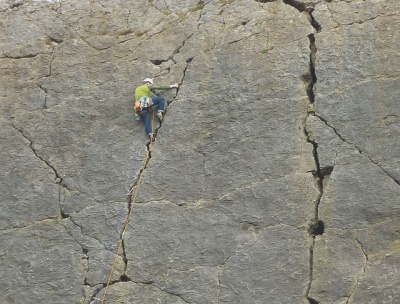Difference between revisions of "Pathways to advanced APM systems"
(→Related: added * Non mechanical technology path) |
(→Related: added * Brownian technology path) |
||
| Line 36: | Line 36: | ||
* '''Up: [[Where to start targeted development]]''' | * '''Up: [[Where to start targeted development]]''' | ||
---- | ---- | ||
| + | {{wikitodo|These following pages need some review.}} | ||
* [[Non mechanical technology path]] | * [[Non mechanical technology path]] | ||
| + | * [[Brownian technology path]] | ||
== External links == | == External links == | ||
Revision as of 17:07, 12 March 2023
- The Incremental path
- The Direct path
- The historic Feynman path
- The paths that aren't paths: Brownian Path => Accidental Path
(wiki-TODO: Needs a basic introduction.)
Its not a binary either or question whether the direct or the incremental path will be taken its more that the two represent extreme ends of a spectrum of possible development progressions. Both types of paths will likely heavily borrow from the non mechanical technology path.
There seems to be a peaceful internal conflict.
See also: Pathway controversy.
Contents
Views of the paths from the proponents of different viewpoints
Critiques:
- incremental path (Ralph Merkle & co): slow and aimless little targeted effort ...
(wiki-TODO: collect their arguments) - direct path (E.Drexler & co): too hard to access experimentally, slow experimental progress, little research motivation (funds)
Relation to speed of introduction of advanced productive nanosystems
It seems any bets are off here. It is worth to note that the usual association of the direct path with sudden and rapid changes and the indirect path with slow and progressive changes might be not incorrect.
- (wiki-TODO: treat benefits and risks of fast vs slow changes)
Related
- Bootstrapping methods for productive nanosystems
- Pathway controversy
- Bridging the gaps
- Up: Where to start targeted development
(wiki-TODO: These following pages need some review.)
External links
Citation from the article "From Here to Nanofactories" (crnano blog – Posted on September 24, 2006):
"..., advances in one dimension will synergize with advances in other dimensions, so it may be more efficient to go straight to a new technology that makes bigger leaps forward in several dimensions at once. But if such a technology can't be found for a particular leap, it can be done in a series of incremental steps. ..."

